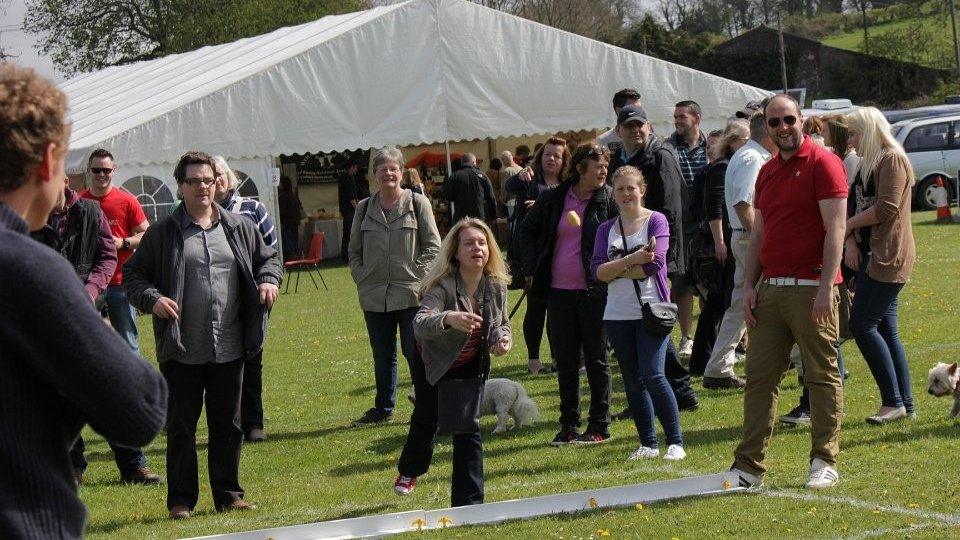Dorset Knob Throwing Games will return but without eating race
- Published
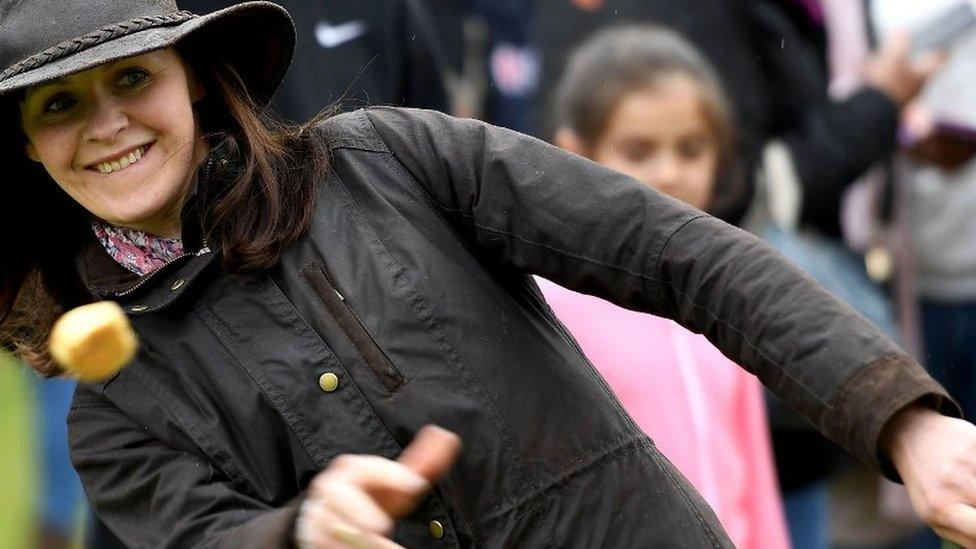
The contest sees people hurl Dorset's traditional knob biscuits down a field
A knob throwing festival that was scrapped because it got too big is to return in July.
The Knob Throwing Games, which last took place in 2019, will be held on 14 July at Chilfrome, Dorset.
The games, where people compete to toss the county's traditional biscuits the furthest, had expanded to include other events.
But its popular knob eating race will not take place this year due to a fear of choking.
The one-day festival, which was first held in 2008 in Cattistock, near Dorchester, will return in conjunction with Cattistock Countryside Show, organisers said.
It had expanded over the years to include numerous knob-themed events involving the very dry, spherical biscuits, such as knob painting, a knob and spoon race, guess the weight of the big knob, knob darts and a knob pyramid.
Ian Gregory, of the organising committee, said: "We are not doing knob eating this year, we don't want people choking on a knob, but you can pin the knob on the Cerne Abbas Giant."
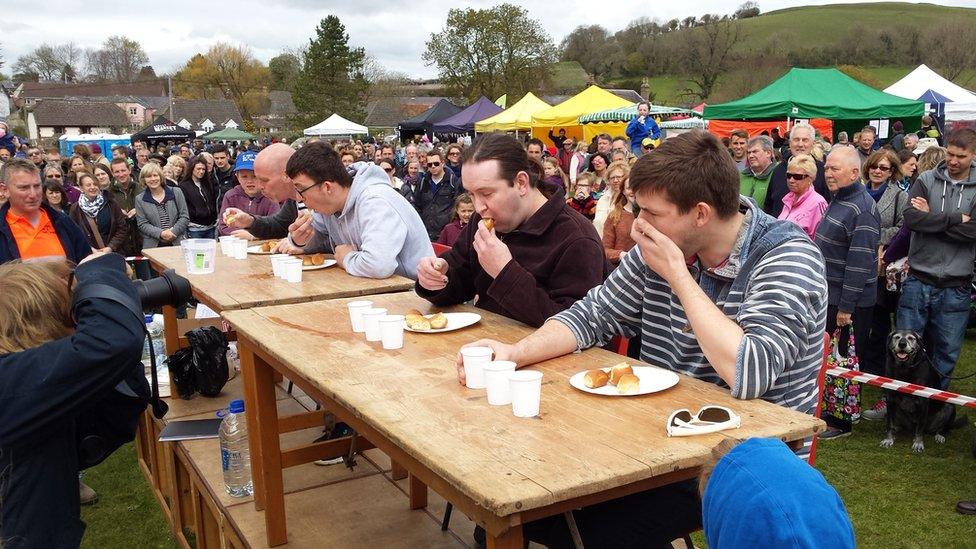
The knob eating race will not be a feature of this year's games
In 2019, the festival attracted more than 8,000 people but it was cancelled in 2020 because no venue was available, and in 2021 due to Covid.
It had been expected to take place again in May 2022 but organisers said it had "reached such a size that it cannot be run by a small village committee".
Mr Gregory said: "We wanted to bring it back home to Cattistock.
"Chilfrome is a whole quarter of a mile from Cattistock. There is better parking, plenty of space.
"The countryside show has been held at that venue for many years so they are entirely familiar with hosting events of this sort."

What are Dorset knobs?
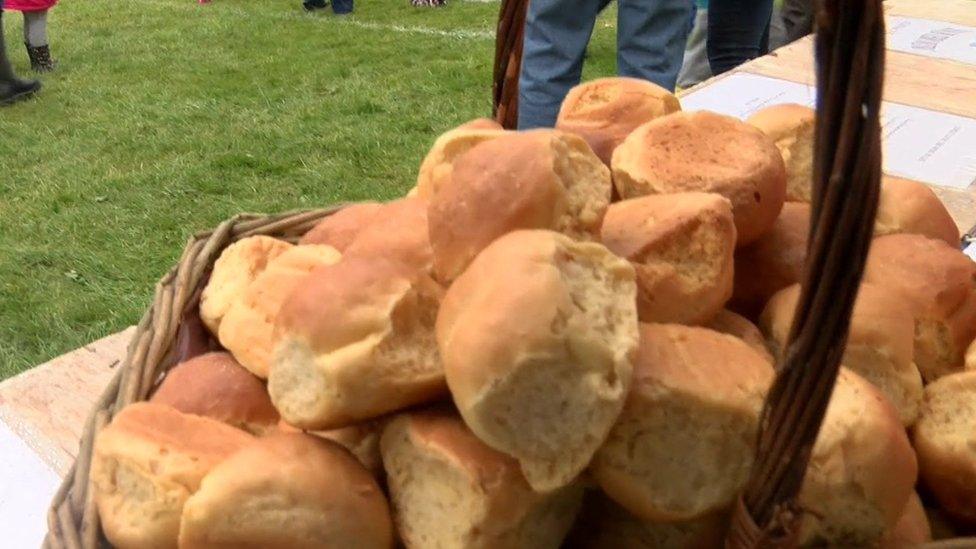
A Dorset knob is a hard, dry, savoury biscuit which has the consistency of very dry stale bread or rusks
The biscuits have been made by the Moores family in Dorset for more than 150 years
Originally, they were made from leftover bread dough with added butter and sugar, hand-rolled and left to dry in the dying heat of the oven
It is thought their name comes from the hand-sewn Dorset knob buttons that were also made locally
They can be eaten with Blue Vinny cheese, dipped in tea or cider, or taken with honey and cream - known locally as thunder and lightning

Follow BBC South on Facebook, external, X, external, or Instagram, external. Send your story ideas to south.newsonline@bbc.co.uk or via WhatsApp on 0808 100 2240.
Related topics
- Published18 February 2024
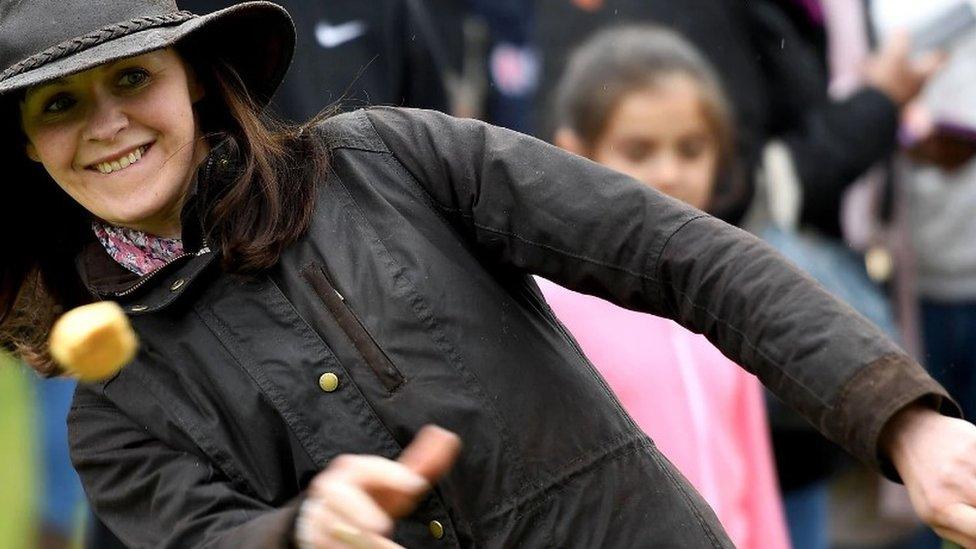
- Published25 January 2022

- Published21 January 2021
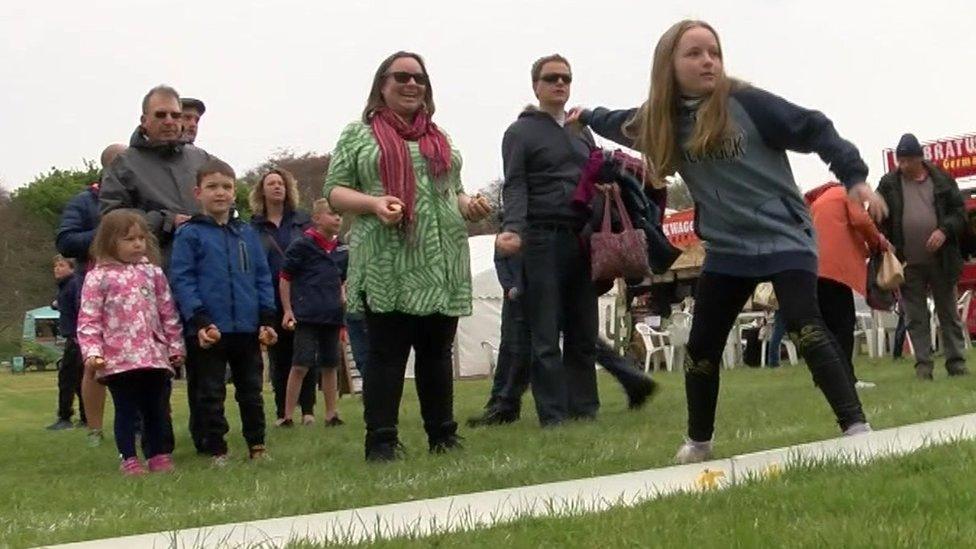
- Published14 October 2019
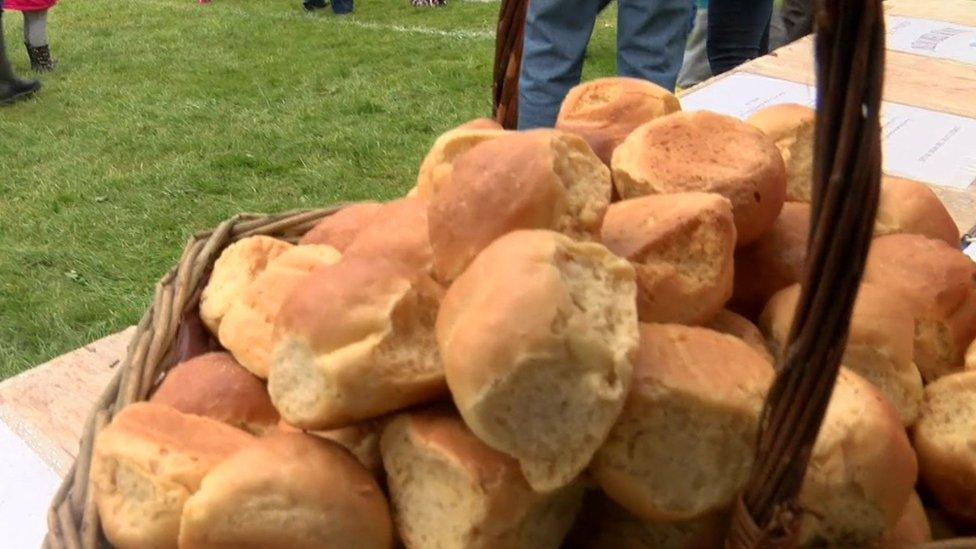
- Published2 February 2018

- Published30 April 2017

- Published1 May 2016
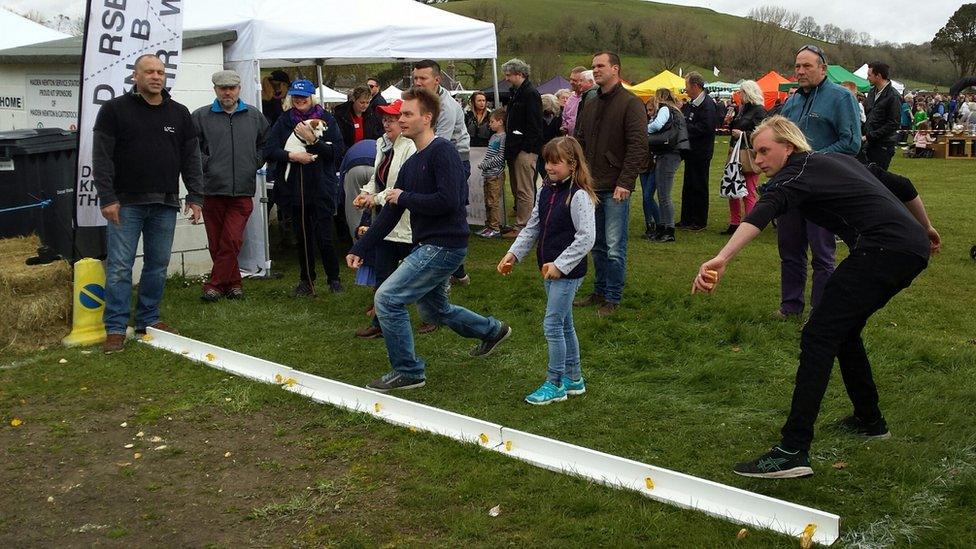
- Published3 May 2015
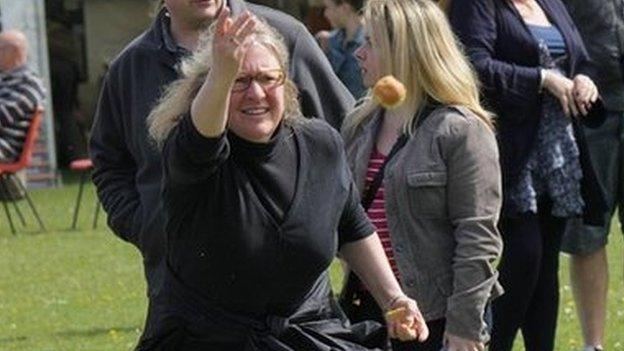
- Published4 May 2014
